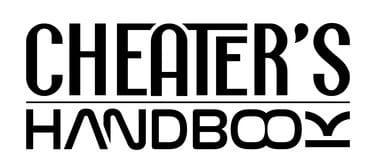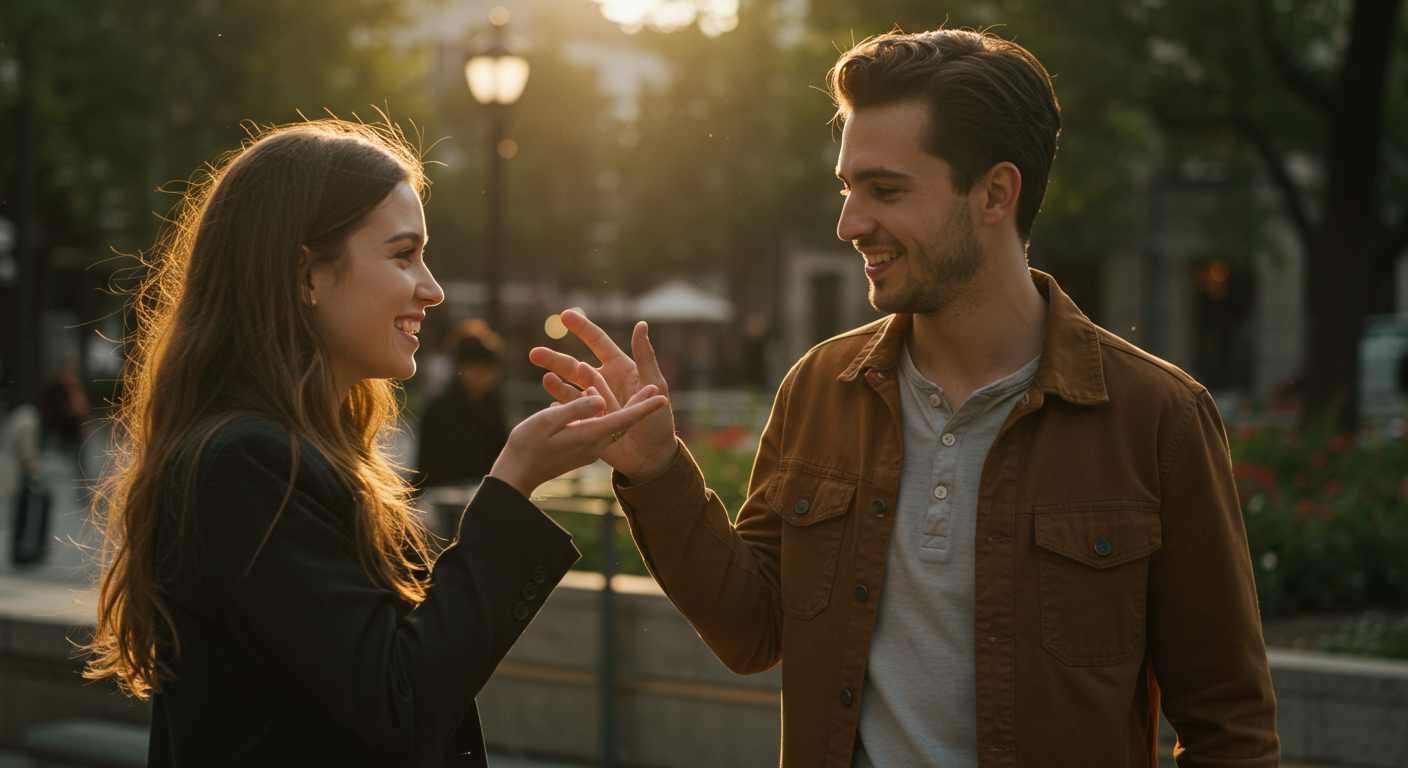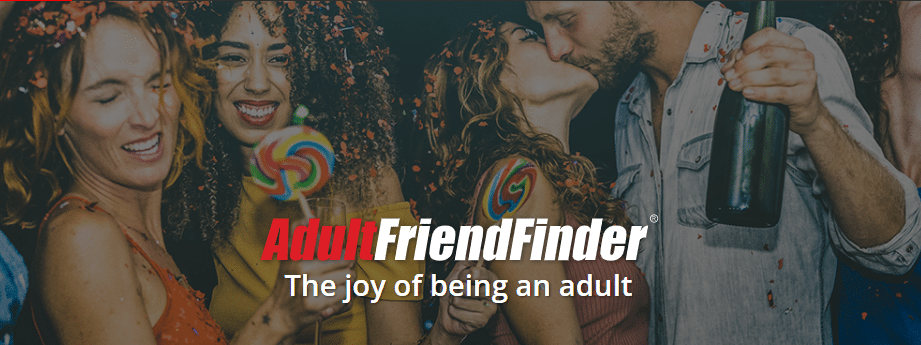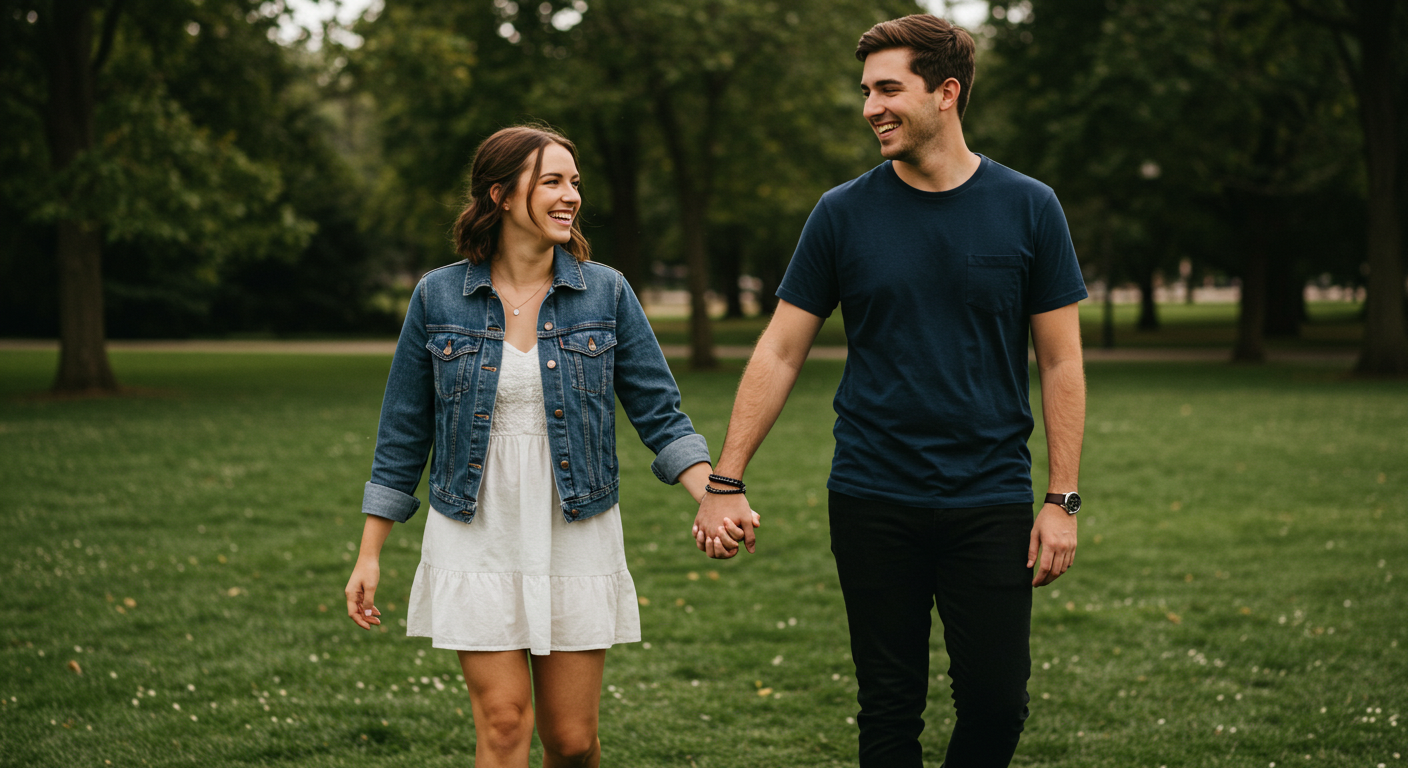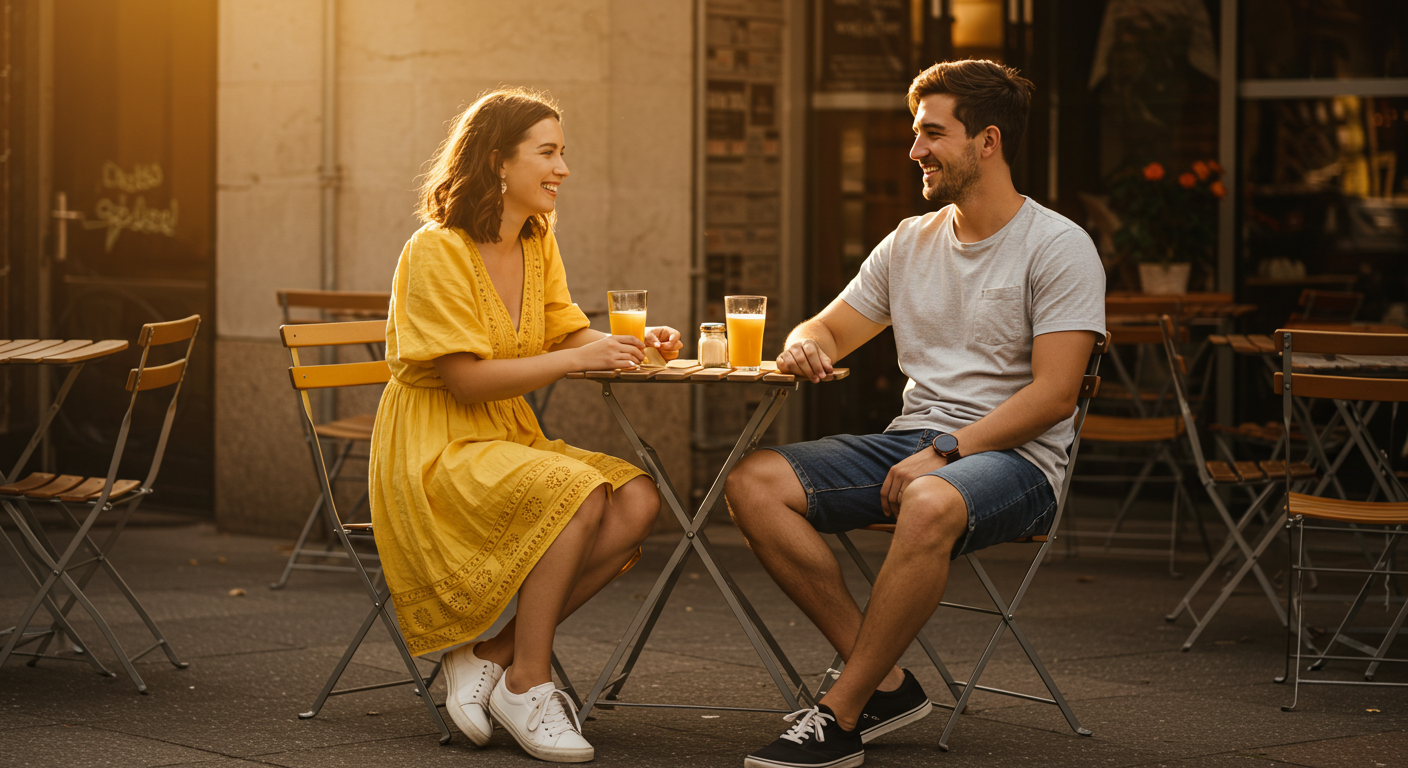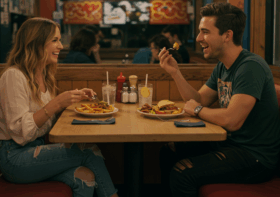Dry Dating: Why Sober Dates Are Becoming the New Norm
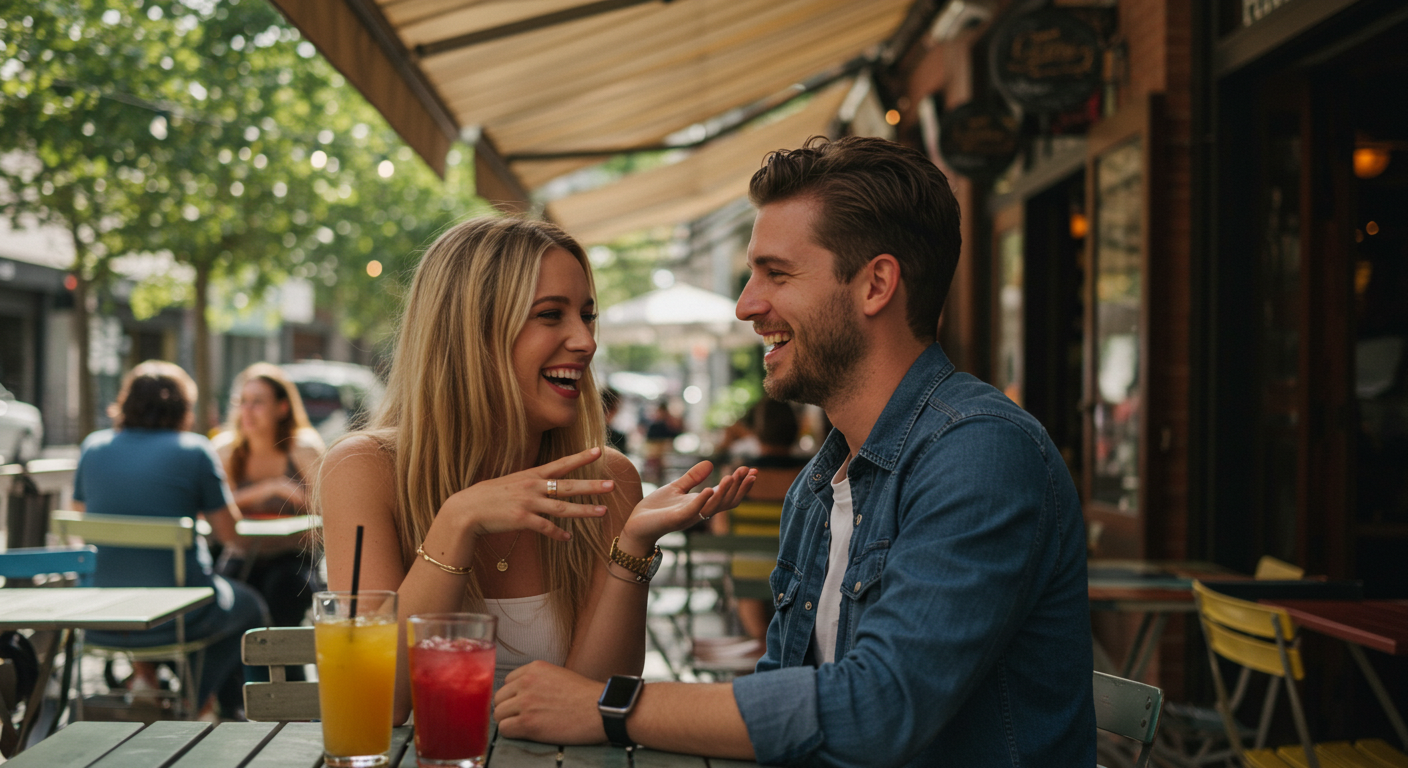
There was a time when dating felt like a social script. First date? Grab a drink. Second date? Another drink, maybe something stronger. Alcohol was built into the experience. It lowered tension, softened the awkwardness, and gave daters something to do with their hands. But somewhere along the way, people started asking what exactly they were connecting over. Was it the person across the table, or just the second round of cocktails?
Enter dry dating. This growing trend invites people to remove alcohol from the dating equation entirely. It is not just for those in recovery, and it is not a moral stance. Dry dating is about clarity. More singles are choosing to get to know each other without relying on alcohol as a buffer or shortcut. They are discovering that presence, honesty, and real-time awareness create better connections than anything poured into a glass.
This shift has not happened in isolation. It is part of a much broader cultural move toward conscious consumption and emotional health. Gen Z and Millennials are leading the way, opting for mindful choices over automatic habits. They are not anti-fun. They are pro-authenticity. And many of them are realizing that their best conversations, their clearest decisions, and their strongest first impressions happen when they are fully sober.
Dry dating is not about removing fun from romance. It is about removing distortion. Without alcohol in the mix, people feel less pressure to perform. They also find out sooner whether a connection is based on genuine chemistry or just temporary comfort. In a dating world filled with noise, dry dating offers something radical: clarity.
What Exactly Is Dry Dating?
Dry dating means going on dates without drinking alcohol. That sounds simple, but the meaning runs deeper. Dry dating is a conscious choice to remove alcohol from an activity where it has traditionally played a central role. The focus shifts from entertaining each other over drinks to being present, emotionally available, and clear-headed from the start.
The term has grown in popularity alongside movements like sober curiosity and wellness-first living. It appeals to a wide range of people. Some choose dry dating because they do not drink at all. Others are simply cutting back, taking a break, or exploring what it means to socialize without alcohol. For many, dry dating is not a permanent switch. It is a strategy to improve the quality of their romantic connections.
What makes dry dating powerful is what it forces you to notice. With no wine glass in hand, you listen more carefully. You feel each moment more clearly. Small things matter. Eye contact, timing, tone, and pauses reveal a lot. Without alcohol, you can tell more quickly if you are enjoying the person or just enjoying the distraction.
Many people also report feeling safer and more respected when alcohol is off the table. Dates that involve drinking can blur boundaries. Dry dating invites a different kind of consent. There is no expectation of loosening up with help from a substance. Everyone is fully present, and that presence builds trust.
This trend has become visible across dating platforms too. Bumble and Hinge now allow users to filter by drinking preferences. Entire apps like Loosid and Sober Grid are built around alcohol-free communities. These shifts reflect the growing demand for honesty, wellness, and sustainable connection.
Dry dating does not remove joy from romance. It removes autopilot behavior. You are still having fun, still flirting, still exploring. You are just doing it with your full brain switched on.
Why Gen Z and Millennials Are Changing the Dating Playbook
There is data to support what has become obvious in real life. Young adults are drinking less than any generation in recent history. A 2023 Gallup poll found that about one third of Gen Z adults report drinking little or not at all. Among Millennials, moderate drinking is also in decline. What is rising instead are interest in mental health, mindfulness, and self-regulation.
This change is not driven by fear. It is driven by intention. Gen Z is less interested in fitting old molds. They want experiences that feel true, not performative. That attitude extends to dating. For a generation that grew up online and overexposed, authenticity is the real flex. Meeting someone in a fully conscious state is part of that value system.
Millennials have also shifted their patterns, especially as they enter their thirties and forties. Many are leaving behind the party-first culture of their twenties. They are tired of hangovers and blurry first impressions. Instead, they want dates that allow them to stay present, maintain boundaries, and form healthy attachments.
Both generations are also heavily influenced by wellness culture. Drinking has lost its glow as a social default. It is now seen by many as something to question, not just accept. Meditation, therapy, yoga, journaling, and now dry dating are all part of the same trend. The goal is to feel more in control, more connected, and more honest — both with others and with yourself.
Even on social media, the shift is clear. Sober influencers, alcohol-free cocktail creators, and dating coaches are normalizing the idea that fun does not require alcohol. Young people are learning that nervous energy on a first date is not a problem to numb. It is a signal to be present, to tune in, and to respond with intention.
Dry dating gives people permission to try something different. It offers a new way to build intimacy — one that does not need alcohol to make it feel exciting.
The Wellness Culture Behind Sober Romance
Dry dating fits perfectly into a cultural moment shaped by wellness, therapy, and intentional living. For many, it is not about cutting out alcohol entirely. It is about removing it from situations where clarity matters most. And few situations require more clarity than early-stage dating.
Wellness culture encourages people to slow down, check in with their feelings, and be honest about what they need. Dry dating supports that process. You can see your boundaries more clearly when your mind is clear. You notice red flags faster, communicate more directly, and stop projecting things that are not actually there.
Dating while sober also aligns with the mental health values that many young adults hold closely. Alcohol is a depressant, a disinhibitor, and a short-term confidence booster with long-term emotional cost. It lowers anxiety in the moment, but it often complicates relationships later. Removing it from dating creates fewer misunderstandings and more self-respect.
Even for those who do not identify with the wellness world, dry dating can offer an emotional reset. If your dating life has started to feel repetitive or draining, changing the format might change the outcome. Alcohol can make bad dates feel more tolerable. It can also make mediocre connections seem better than they are. Dry dating removes the filter and lets reality show up.
There is also a deeper social shift happening. People are choosing values-driven relationships over vibe-based flings. They are interested in compatibility, not just chemistry. They want someone who can hold a conversation without leaning on a drink. In that way, dry dating is not just a preference. It is a filter for who is really ready for connection.
The Benefits of Skipping Alcohol on Dates
When you take alcohol out of the dating equation, you create a different kind of environment. One where conversations feel more grounded, where nerves are not drowned out but navigated. A space where the other person is not blurring into the background of a noisy bar. In short, dry dating offers clarity. And that clarity comes with real benefits.
The most immediate benefit is presence. Without alcohol, you are fully aware of what the other person is saying, how they are acting, and how you are responding to them. That awareness helps you notice green flags more quickly, and it also helps you avoid mistaking charm for connection. There is no liquid filter. What you see is what you get.
Then there is emotional regulation. When both people are sober, they tend to communicate more honestly. There are fewer misunderstandings, fewer impulsive choices, and less pressure to escalate intimacy too quickly. Dates feel more like genuine conversations and less like performances. You are not trying to impress someone by loosening up. You are showing up as you are.
Dry dating can also lead to faster decision-making. You know early on whether you feel a spark. You can tell if there is awkward silence, forced conversation, or real compatibility. There is no artificial chemistry created by shared drinks. If you click, it is real. If you do not, you know sooner.
For people focused on mental health, dry dating reduces the risk of emotional highs and lows that often follow alcohol-fueled meetups. It supports consistency. You are not second-guessing your feelings the next day. You are not trying to remember if you actually liked the person, or if you just liked the mood.
Most importantly, dry dating builds trust. You are telling the other person, with your actions, that you want to get to know them without distractions. That you are showing up clear, curious, and intentional. For many, that simple choice is more romantic than any bottle of wine ever could be.
What Dry Dating Actually Looks Like
Dry dating is not about saying no to fun. It is about redefining what fun means in a dating context. Without the option of “grab drinks,” people get more creative — and often more intentional — with how they spend time together.
A dry date can be anything that lets two people connect without the fog of alcohol. Coffee shops are the most obvious alternative, but they are just the beginning. Walks through city parks, museum visits, independent bookstores, farmers markets, and casual day hikes are all common go-tos. These spaces invite conversation while providing natural pauses and sensory variety.
Some couples lean into food-based experiences. Going out for brunch, cooking together, or exploring local bakeries offers the same shared pleasure as grabbing a drink, without the side effects. Others opt for activity-based dates like pottery classes, board game cafes, art nights, trivia, or mini golf. These options create shared memories, not just shared menus.
Dry dating also makes space for deeper emotional pacing. When you are not using alcohol to speed up vulnerability, you find different ways to express comfort and closeness. Maybe it takes longer to share something personal, but when it happens, it feels more earned. And because no one is using drinks to skip the tension, you learn to communicate more openly about what you feel and want.
If you are used to the rhythm of alcohol-fueled dates, dry dating can feel unfamiliar at first. But for many, that unfamiliarity leads to a breakthrough. They find out that their best self is not the one ordering another cocktail. It is the one making space for a slower, more intentional connection.
Dry dates may not always be glamorous, but they are real. And that realness tends to create more meaningful second dates — the kind that come from presence, not performance.
Is This the End of the “Drinks First” Era?
Not entirely. Going out for drinks is still a valid and widely used option. But dry dating is carving out serious space in the cultural conversation, and that shift is not temporary. It reflects a deeper change in how people want to connect — one that prioritizes intention over impulse.
What used to be a bold or awkward request, such as suggesting a sober first date, is now increasingly seen as thoughtful and mature. It signals a person who is clear about their values, respectful of their mental health, and genuinely interested in connection. Instead of being met with confusion or resistance, dry dating is often received as a sign of emotional responsibility.
This shift also reflects changing expectations around what makes a “good” date. People are tired of the blurry, slightly tipsy rituals that lead nowhere. They want moments that feel real. Experiences that create stories. And the freedom to remember everything the next day without second-guessing anything.
Restaurants, cafes, and dating platforms are noticing too. More venues now highlight mocktail menus, alcohol-free wines, and zero-proof spirits. Non-alcoholic tasting events, sober social clubs, and wellness-focused mixers are becoming common in major cities. These changes support a future where dating without alcohol is not just accepted but celebrated.
It would be inaccurate to say the era of drinks is over. But it is fair to say that it is no longer the default. And for those leading the charge, that change is long overdue.
Conclusion: Choosing Clarity Over Convention
Dry dating may have started as a niche movement, but it is now part of a larger cultural reset. People are asking bigger questions about how they want to show up in relationships. They are rethinking what makes them feel safe, seen, and excited. And increasingly, the answer has nothing to do with what is in their glass.
At its core, dry dating is not just about alcohol. It is about honesty. You are choosing to show up as yourself. You are choosing to meet someone with a clear head, steady voice, and full awareness of how you feel. That kind of presence is rare in a world full of distractions.
For many, this shift has brought relief. They no longer have to perform confidence. They do not have to pretend they are having a good time just because the mood is set by music and martinis. They can lean into awkward silences, real laughter, and honest reactions. They can say no to the scene and yes to something more sincere.
Whether you are fully sober, sober curious, or just tired of the same old bar routine, dry dating offers an alternative worth exploring. It is not about doing less. It is about doing different. And in the process, it is helping people build relationships on foundations of clarity, respect, and presence.
This is not a trend. It is a sign of what happens when people stop numbing and start noticing. When they stop coasting and start choosing. And when they stop asking, “Should we grab a drink?” and start asking, “Do we really connect?”
That question may not be easy. But for many, it is exactly the one worth answering.
My Go-To Platform for Flings, Affairs, and MILFs
Looking for top-notch flings, affairs, or MILFs? Skip the rest, AdultFriendFinder is the gold standard. Zero bots, zero fakes—just real connections. I've scored big in multiple cities. Sign up now, it's FREE!
